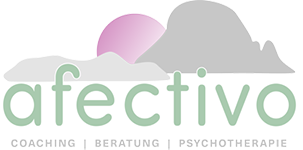Highly sensitive children
Teacher Thich Nhat Hanh (1926): "Within ourselves, we are often still wounded children. Our hurts may have been caused by our parents. Perhaps our father was also hurt as a child, and our mother was also hurt as a little girl. Not knowing how to heal their childhood wounds, they transferred their hurts to us. If we do not know how to transform and heal our inner hurts, we pass them on to our children and our children's children. That's why we have to take care of the wounded child inside us and help him heal."
Of course, there are also highly sensitive children. These are especially close to my heart, as they are true treasures and can develop special potential through mindful and loving treatment. I am happy to advise on this and help families and also organizations (schools, daycare centers, daycare providers, etc.) to become more familiar with this topic.
About 20% of all children are born as highly sensitive, but I think the percentage is higher. Highly sensitive children are very special people. The greatest gift you can give them as parents is to recognize and accept their high sensitivity, to strengthen the child in its whole being and to integrate it gently into this world.
But how exactly do you recognize if your child is highly sensitive?
- Highly sensitive children are often jumpy and restless, they cry a lot
- They are more sensitive to pain and touch than other children. Certain clothes can already disturb them and trigger a tantrum
- It is very difficult for them to control their emotions. The permanent overstimulation also plays a big role
- They do not like authoritarian and dominant people. Thus tensions with "authority figures" often arise
- They need many rest breaks and time for themselves; if these are not made possible, strong stress symptoms occur
- Highly sensitive children are not good at dealing with change (e.g., moving, new place on vacation, separation of parents...)
- They are often very intuitive and communicative. Therefore, they also perceive tensions within the family intensively
- Justice is important to them
- They are initially cautious and skeptical of strangers.
- They recognize complex relationships early on
- They ask many critical questions
- Often very creative and imaginative
- They usually have low self-confidence
Highly sensitive children are especially close to my heart, because it can save a lot of suffering if their high sensitivity is recognized early. Especially parents, pedagogues, like educators and teachers and also other family members, urgently need to be sensitized for this special characteristic. Unfortunately, highly sensitive children are put into a "drawer" much too quickly, labeled as too complicated, introverted or even wild and maladjusted. Not infrequently, diagnoses (such as very often ADHD) are also made and the child is "immobilized" under the influence of certain substances, such as Ritalin. The long-term effects are enormous, to the detriment of the child and its development.
There are other risks to which highly sensitive children are exposed:
- They have often been made to feel that there is "something wrong" with them.
- Social pressure and striving for conformity puts such pressure on these children that they often withdraw and experience themselves as "not right
- They therefore need frequent and much positive feedback and confirmation. Unfortunately, however, this confirmation and support tends to be lacking
- They often adapt to the parental home and the desired behavior because they strive for harmony, love and peace. They move further and further away from "themselves"
- They are more susceptible to mental injuries (CAUTION!), consequence can also be mental illnesses and disorders.


